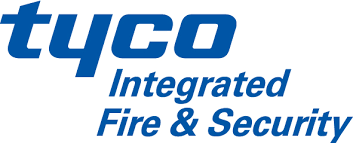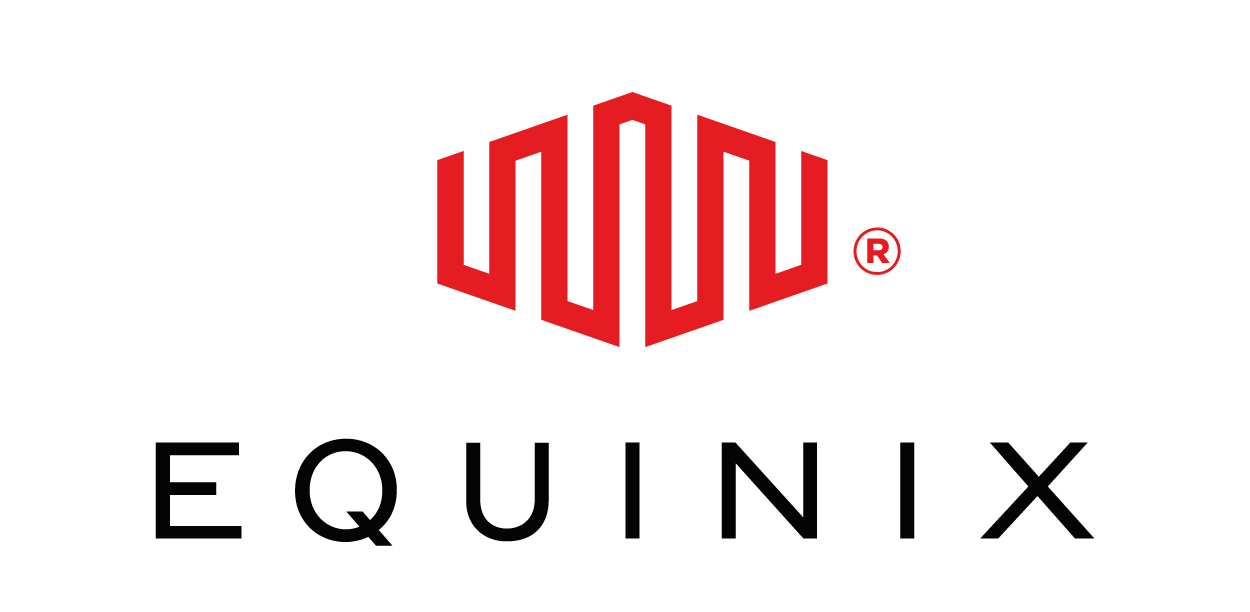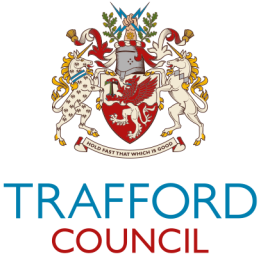Level 2 Qualifications: The Ultimate Guide for 2024
Level 2 Qualifications: The Ultimate Guide for 2024
Introduction
Embarking on your educational journey, you recognize the pivotal role that level 2 qualifications play in shaping your future. These certifications serve as a crucial stepping stone, paving the way for advanced studies or opening doors to employment opportunities. As key indicators of your foundational knowledge and skills, level 2 qualifications are highly regarded by employers and educational institutions alike.
This ultimate guide for 2024 is crafted to navigate you through the myriad of options under the umbrella of level 2 qualifications. Whether you consider mainstream education such as GCSEs, vocational pursuits like apprenticeships, or specialized diplomas, this guide provides a comprehensive overview. You will discover:
- The spectrum of level 2 qualifications available
- Insights into how these qualifications can bolster your career prospects
- A clear pathway for further education and advancement
Armed with this information, you are poised to make informed decisions that align with your personal and professional goals. Let's explore the landscape of level 2 qualifications together.
Understanding Level 2 Qualifications
When you consider advancing your education or career, understanding the landscape of qualifications available to you is crucial. Level 2 qualifications play a significant role in building a strong foundation for further education and employment opportunities. Here's an in-depth look at the various types of Level 2 qualifications:
Overview of GCSE as a Level 2 Qualification
The General Certificate of Secondary Education (GCSE) is a well-recognized academic qualification in England, Wales, and Northern Ireland awarded for specific subjects. You typically take GCSEs at the end of compulsory education over two years, with assessments through examinations and coursework.
- Subjects: You can select from a wide range of subjects, from core offerings like Mathematics and English to electives such as foreign languages or creative arts.
- Grading System: The grades for GCSEs range from 9 to 4 (equivalent to A* to C in the old grading system), with these considered as level 2 passes.
- Relevance: Holding GCSE qualifications can be essential for entering various professional fields and is often required for further education.
Explanation of CSE as a Level 2 Qualification
The Certificate of Secondary Education (CSE) was previously offered alongside O-Levels before being replaced by GCSEs. Despite its phasing out, a grade 1 CSE is recognized as equivalent to a level 2 qualification. If you hold a CSE with grade 1, it demonstrates that you have achieved standards at level 2.
Introduction to Apprenticeships as a Level 2 Qualification
Apprenticeships offer practical training in a work environment, leading to industry-recognized qualifications. A level 2 apprenticeship is an intermediate apprenticeship that equips you with the skills and knowledge necessary for your chosen career path.
- Work-Based Learning: As an apprentice, you earn while you learn, working alongside experienced staff to gain job-specific skills.
- Study Component: In addition to on-the-job training, you complete study elements that often lead to qualifications such as NVQs or BTECs at level 2.
- Career Progression: Completing an apprenticeship can open doors to higher-level apprenticeships or employment within your chosen field.
For instance, if you're interested in administrative roles or digital marketing positions, starting with an apprenticeship could provide valuable hands-on experience along with theoretical knowledge integral for these careers. Similarly, exploring the path of becoming a digital marketing assistant through relevant apprenticeships can offer a comprehensive understanding of the field.
Understanding Diplomas at Level 2
Level 2 diplomas are vocational qualifications focusing on a specific area of employment or skill set. These are designed to prepare you for work or propel you into higher-level courses.
- Course Content: You delve into industry-specific modules that teach practical skills relevant to job roles within the sector.
- Assessment Methods: Depending on the diploma, assessments may include projects, practical tasks, and written exams.
- Recognition: Achieving a diploma at level 2 signifies that you have developed expertise in your area of study which can be pivotal when seeking employment or looking to advance academically.
A diploma could pave the way towards specialized
Equivalence of Level 2 Qualifications
When you're considering Level 2 qualifications, understanding how they stack up against other qualifications is essential for making informed decisions about your education and career. The equivalencies between different types of degrees, diplomas, and certificates can often seem complex, but grasping these nuances is crucial.
Definition of Level 2 Qualifications
Level 2 qualifications are typically equivalent to a high standard of learning at secondary education level. They signify that you have grasped a comprehensive knowledge base in a specific subject area or vocational skill set.
Different Types of Level 2 Qualifications
- GCSE: General Certificate of Secondary Education
- CSE: Certificate of Secondary Education
- Apprenticeship: Vocational training combined with work experience
- Diploma: Specialized education in a particular field
Equivalence of Qualifications
The equivalence framework ensures that employers and educational institutions can recognize the value of different qualifications. Here's how Level 2 qualifications equate to others:
- GCSEs, traditionally viewed as the benchmark for secondary education, are rated at Level 2 on the Regulated Qualifications Framework (RQF). Grades 9 through 4 (equivalent to A* through C) fall into this category. These are regarded as high enough grades for many jobs and educational programs that require GCSE-level qualifications.
- CSEs, although less common today, still hold merit as Level 2 qualifications if you achieved grade 1. They are considered on par with a GCSE grade C/4, and serve as evidence of similar competencies.
- Apprenticeships at an intermediate level are designed to provide practical workplace skills alongside theoretical knowledge. Completing an apprenticeship provides both work experience and training, which can be seen as equivalent to five good GCSE passes.
- Diplomas at Level 2 focus on a specific area of study or occupation and can be likened to having multiple GCSEs in terms of difficulty and depth. These qualifications prepare you for employment or further study in specialized subjects.
Difference Between Course Levels
It is important to note that while all these certifications are pegged at Level 2, they may differ in content focus:
- GCSEs cover academic subjects such as mathematics, English, science, history, etc., serving as a foundation for further academic pursuits.
- CSEs, although largely replaced by GCSEs, emphasized practical knowledge and skills suitable for specific job roles.
- Intermediate Apprenticeships blend learning with hands-on experience in industries ranging from construction to business administration.
- Level 2 Diplomas delve into vocational areas with an industry-specific curriculum that often includes practical assignments and projects.
Understanding these comparisons ensures that when you choose your path—whether it's further education or entering the workforce—you do so with clarity about how your qualifications will be perceived and what doors they may open for you.
By identifying the equivalences between different qualification types at Level 2, you equip yourself with the knowledge required to plan your next steps effectively. Whether transitioning directly into employment or pursuing higher educational opportunities, recognizing where each qualification stands helps chart a course toward achieving your goals.
Benefits and Opportunities
When you secure a Level 2 qualification, you open up a new world of possibilities. These certifications can be a launching pad for career advancements and further educational pursuits. Let's delve into the specifics:
Advantages of Obtaining a Level 2 Qualification
- Recognition: Level 2 qualifications are recognized by employers and education providers alike, signaling that you have met a certain standard of learning.
- Skill Development: You acquire specific skills tailored to your chosen field, making you more adept and knowledgeable.
- Employability: Holding such qualifications enhances your resume, making you a more attractive candidate for jobs.
- Flexibility: Many Level 2 qualifications offer part-time study options, allowing you to learn while working or managing other commitments.
Enhanced Career Prospects with a Level 2 Qualification
With a Level 2 qualification under your belt, your career prospects can significantly improve. Here's how:
- Job Opportunities: You become eligible for various entry-level positions that require specialized skills.
- Higher Wages: Often, these qualifications lead to better-paying jobs compared to those without such credentials.
- Professional Development: They serve as evidence of your commitment to personal and professional growth.
- Sector-Specific Skills: For sectors like health and social care, construction, or IT, these qualifications provide the foundational knowledge employers seek.
Progression and Further Education
After achieving a Level 2 qualification, many doors open in terms of progression:
Exploring Further Education Options after Completing a Level 2 Qualification
If you're looking to expand your expertise further, consider these paths:
- Level 3 Qualifications: These are the next step up and can include A-levels or Advanced Diplomas, offering deeper knowledge in your area of interest.
- Specialized Training Courses: Enhance your skill set with targeted training; for instance, if you want to focus on safety management, you might consider My Training Academy's Fire Warden (Fire Marshal) Online Course, which is CPD accredited.
- Professional Certifications: Some industries value certifications that demonstrate proficiency in specific tools or systems relevant to the job.
Discussing Potential Pathways and Courses for Progression
Your journey doesn't stop here. Possible pathways include:
- Apprenticeships: An advanced apprenticeship can be your next move for practical experience combined with further education.
- Vocational Training: Dive deeper into vocational studies with courses tailored to specific job roles—for example, those seeking a marketing role might explore options like the Social Media Marketing Bundle from My Training Academy.
- Tech Proficiency Courses: With technology being integral across sectors, improving tech literacy through courses such as the Mastering Your iPhone and Android Phone Bundle from My Training Academy can enhance both personal and professional capabilities.
By investing in further education after obtaining a Level 2 qualification, you ensure continuous growth in both knowledge and employability—setting yourself apart in today's competitive job market.
Obtaining and Succeeding in Level 2 Qualifications
When you set out to gain a Level 2 qualification, understanding the syllabus and curriculum is paramount. Each qualification has its unique content, learning outcomes, and evaluation criteria, which are meticulously outlined in its syllabus. For instance, a GCSE course will detail the topics you must master, while an Intermediate apprenticeship will outline the practical skills and theoretical knowledge required.
Understanding the Syllabus and Curriculum for Level 2 Qualifications
GCSEs
The syllabi for GCSE subjects include detailed breakdowns of the topics covered, assessment objectives, and grading criteria.
Intermediate Apprenticeships
These combine work with study; you'll find that the curriculum includes both on-the-job training and coursework.
Level 2 Diplomas/Certificates/Awards
Typically focused on vocational or technical skills, these curricula are designed to prepare you for specific careers or further education.
To excel in any of these qualifications, immerse yourself in the syllabus from day one. Align your study habits with the learning outcomes to ensure a comprehensive understanding of all subject matter.
Accessing Information on Government Websites Regarding Level 2 Qualifications
A wealth of information about Level 2 qualifications can be found on government websites. They serve as authoritative resources for up-to-date syllabi, exam dates, and official guidelines. Bookmark these sites to stay informed about any changes that could affect your study plan or examination schedule.
Diverse Assessment Methods for Assessing Level 2 Competence
- Assessments at this level come in various forms:
- Written exams: Common in GCSEs and some diplomas, testing your knowledge under supervised conditions.
- Coursework: Assignments that may include essays, projects or portfolios.
- Practical assessments: Especially prevalent in apprenticeships and vocational qualifications where demonstrating skills is essential.
- Oral presentations: In some subjects, you might need to present your knowledge verbally.
Understanding how you'll be assessed helps tailor your preparation effectively. For example, if practical skills are a significant component of your course, hands-on practice should form a core part of your revision strategy.
Navigating the Certification Process with Confidence
Upon completing your coursework and assessments successfully, you'll navigate the certification process. This often involves collaboration between educational institutions and awarding bodies. Maintain clear communication with your tutors or trainers about submission deadlines and certification requirements to ensure a smooth process.
Remember that certifications like CompTIA's security courses or Cisco's networking certifications may require passing specific exams. For example:
- If pursuing a career in IT security after completing relevant Level 2 qualifications, consider enhancing your credentials with a CompTIA CASP course. It is ideal for individuals or teams who want to build on their IT security skills while preparing for the CAS-002 exam.
- A foundational understanding of cloud computing gained from a Level 2 diploma could be augmented by CompTIA Cloud Essential certification which is applicable to a wide range of IT professionals.
For those interested in network security post-Level 2 studies, the CCNA Security Course provides advanced training suitable for preparing for Cisco's CCNA security exam.
Additionally:
- Network professionals looking
Conclusion
Obtaining level 2 qualifications can be a crucial step in your education and career path. This comprehensive guide for 2024 presents various options available to you, such as GCSEs and apprenticeships, each offering new opportunities. Use the information provided here to choose the path that suits your goals.
Level 2 qualifications provide a strong foundation of knowledge and skills, whether you plan to pursue further education or enter the job market directly. These certifications are designed to support your growth.
To succeed in level 2 qualifications, it's important to stay dedicated and access the right resources. Stay updated on syllabus changes and assessment methods through government websites and educational institutions. This will give you an edge over other candidates in your chosen field.
As you continue reading this guide, remember that level 2 qualifications represent more than just pieces of paper; they showcase your commitment and pave the way for future achievements.












